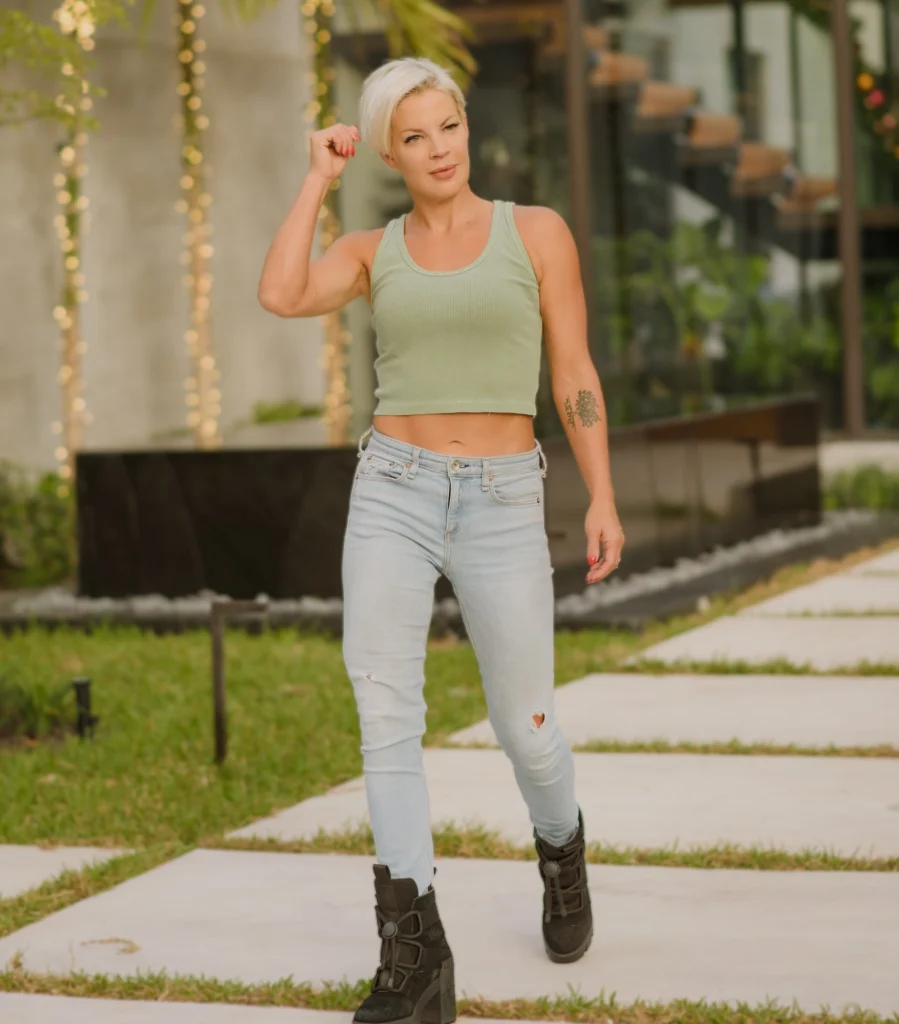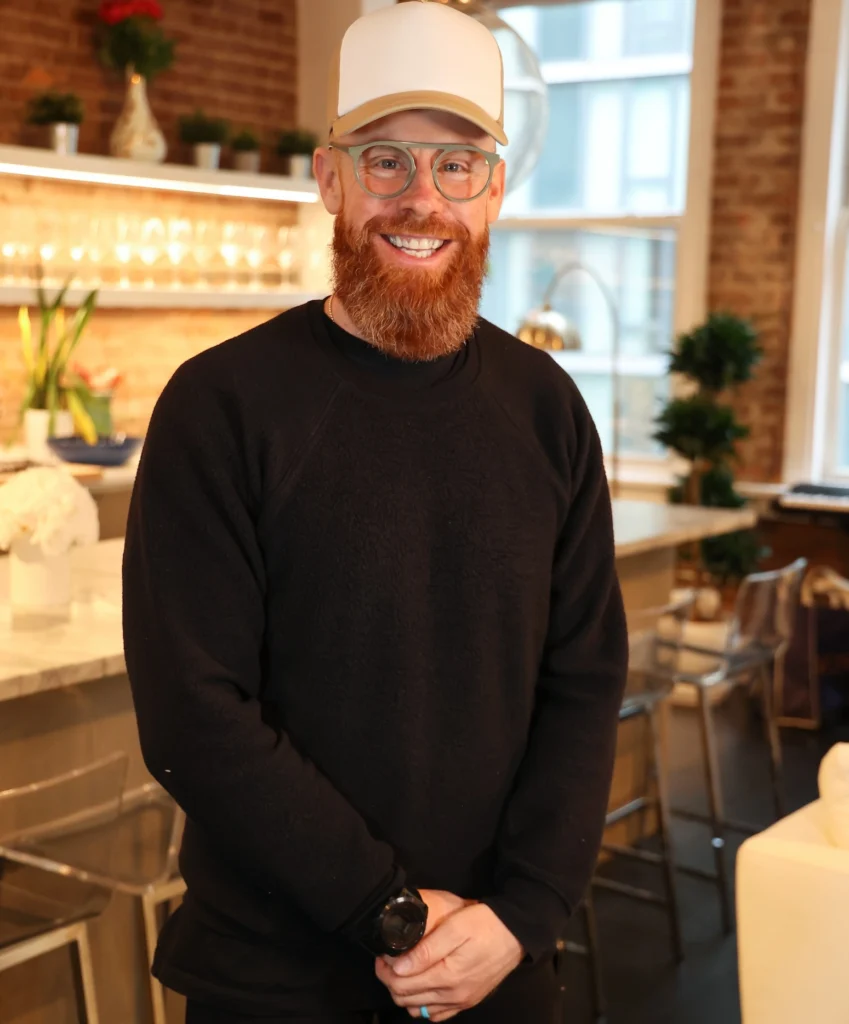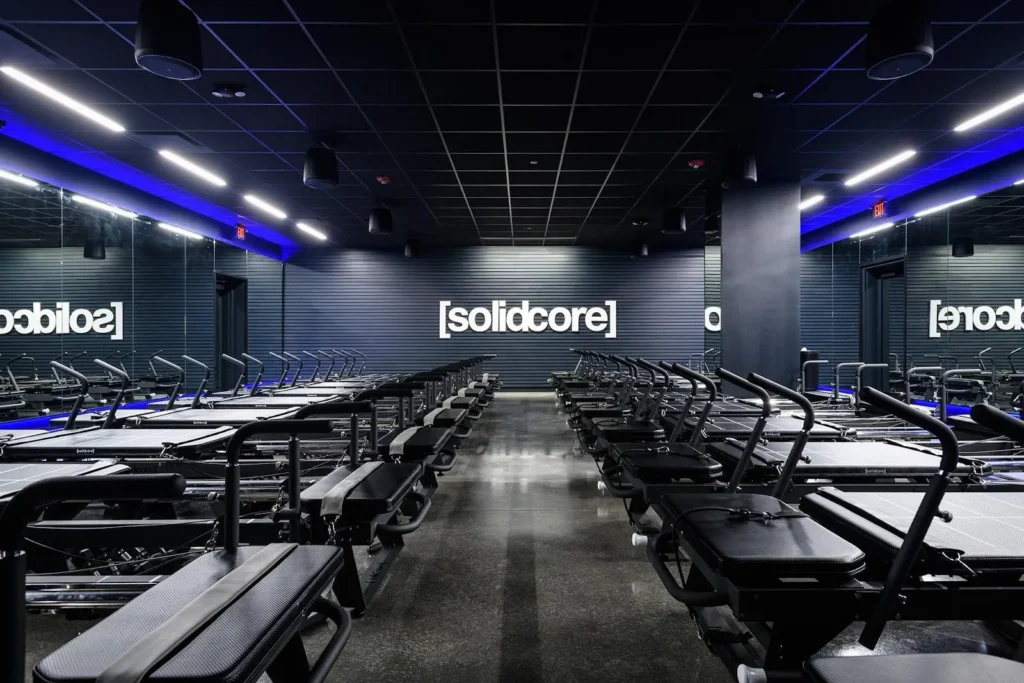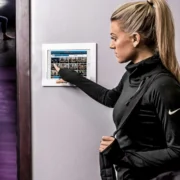Anne Mahlum on Scaling Solidcore: Why Amenities Are Overrated

This article is part of ATN’s DISRUPT 2024 video series, featuring can’t-miss conversations with the biggest executives in fitness and wellness. To watch DISRUPT content, click here
Scaling any business is a complex and complicated endeavor. This is especially true in the fitness and wellness industry, where the human touch is so important but so difficult to replicate across multiple locations.
Anne Mahlum, who founded Pilates-inspired boutique fitness brand Solidcore in 2013 and grew it into a 100-location behemoth before selling it for close to $100 million in 2023, is an expert in the scaling game.
“I would never have opened my first Solidcore studio if I didn’t plan to make an empire out of it,” Mahlum said during ATN’s DISRUPT 2024 video series.
During DISRUPT, Mahlum sat down with her business partner Jay Siano, a commercial real estate expert who’s helped scale brands including Starbucks, Chipotle and Orangetheory Fitness, to offer advice for founders looking to build the next big fitness and wellness brand.
ATN breaks down the conversation to highlight some key takeaways.
ROI Above All Else
Mahlum’s advice for fitness and wellness entrepreneurs: focus on ROI (return on investment) from the very beginning, especially when it comes to real estate. Solidcore’s initial studios were deliberately small in size (around 1,500 to 2,000 square feet), making them easier to manage and monetize.
“If your footprint is 2,000 square feet, try to make sure 1,900 of it, you can generate revenue in,” Mahlum said. “That’s a little bit (of) embellishing, but as much money as you can from every square foot will create a cushion for the profit margins that you need.”
While it can be tempting to build out a studio with a large, welcoming lobby and extra touches like fully stocked showers, those amenities can be difficult to monetize. For brands looking to scale quickly, it’s better to keep things simple and focus on fitness.
“At Solidcore, we were looking and saying, ‘If I can’t fit an extra machine, I’m not paying for an extra 100 square feet,’” Mahlum recalled of lease negotiations. “There’s no way for me to make money with somebody sitting on a bench in the lobby.”

Siano, who runs real estate advisory firm Sabre and has worked with brands like Chipotle on their expansion strategies, agreed, saying one of the things that drew him to Solidcore was the brand’s resemblance to the fast-casual Mexican chain when it came to operational efficiency.
“When I first met Anne and walked into a Solidcore, It was the same effect … as walking into the first Chipotle,” Siano said. “It was very streamlined, the bathrooms only had toilets; there were no showers. You walked in, there was no person at the front desk. It was the antithesis of everything I had experienced in group fitness prior.”

(Anne) was so focused on the ROI of every inch of the place,” Siano added.
To Scale Culture, Invest in People
When it comes to creating a brand that can thrive in cities across the United States, Mahlum says founders must set a top-down standard for company culture.
“How we show up in the office, how we’re showing up with our people, talking to them, getting them excited about the future, the vision, their role … it’s leading with authenticity,” Mahlum said.
“Solidcore’s tagline was, ‘Create the strongest version of yourself. … Everybody I hired and spent time with also embodied (that) same ethos,” she added.
Part of creating a good culture means having tough conversations when employees aren’t living up to that standard.
“As soon as you see people who aren’t doing that, they’ve got to go,” Mahlum said, noting that she’s “fired a lot of people in my life.”
“I don’t have a lot of tolerance for that,” she added. “I had to protect that culture like my life depended on it because, trust me, I knew that would be the demise of that company if we didn’t get that right.”

On the flip side, founders shouldn’t shy away from investing in quality talent. Mahlum recalled the moment she hired Bryan Myers from Sweetgreen. Myers now serves as president and CEO of Solidcore, and has been recognized as one the top executives in the industry.
“I can still remember when I hired Bryan Myers and the salary that he wanted. I was like, ‘What, I don’t even make close to that,’” she said. “And that was my light bulb moment of like, ‘If I really want to do this, I need someone like Brian. It’s not an expense for me, this is an investment, and I have to know that this guy is going to help elevate the business and generate a ton more revenue for us.'”
Don’t Raise Money … Unless
Mahlum grew Solidcore into one of the biggest brands in boutique fitness thanks in part to raising large amounts of venture capital and private equity money.
Still, she admits the fundraising route isn’t for everyone. In fact, it’s only suitable for those who are committed to growth and are willing to sell their company down the road.
“If you’re taking on any kind of investment, you better know that your investor wants to see a return and that your plan needs to be to sell your company at some point because that’s what private equity is,” Mahlum said. “There’s a lot of people who have bad experiences with private equity because they’re on different pages.”
Founders who raise outside funding must also resist the temptation to spend lavishly or irresponsibly once they’re flush with cash, Mahlum warns.
“One thing we didn’t do at Solidcore that I’m really proud of after getting all that money, we didn’t go out and get some fancy-ass office space,” she said. “Our headquarters was my apartment in DC for a very long time.”
“We kept the money (invested) into places where we knew we were going to make a really healthy return,” she added. “And that’s something you can’t ever stop doing, no matter how big the company gets.”



